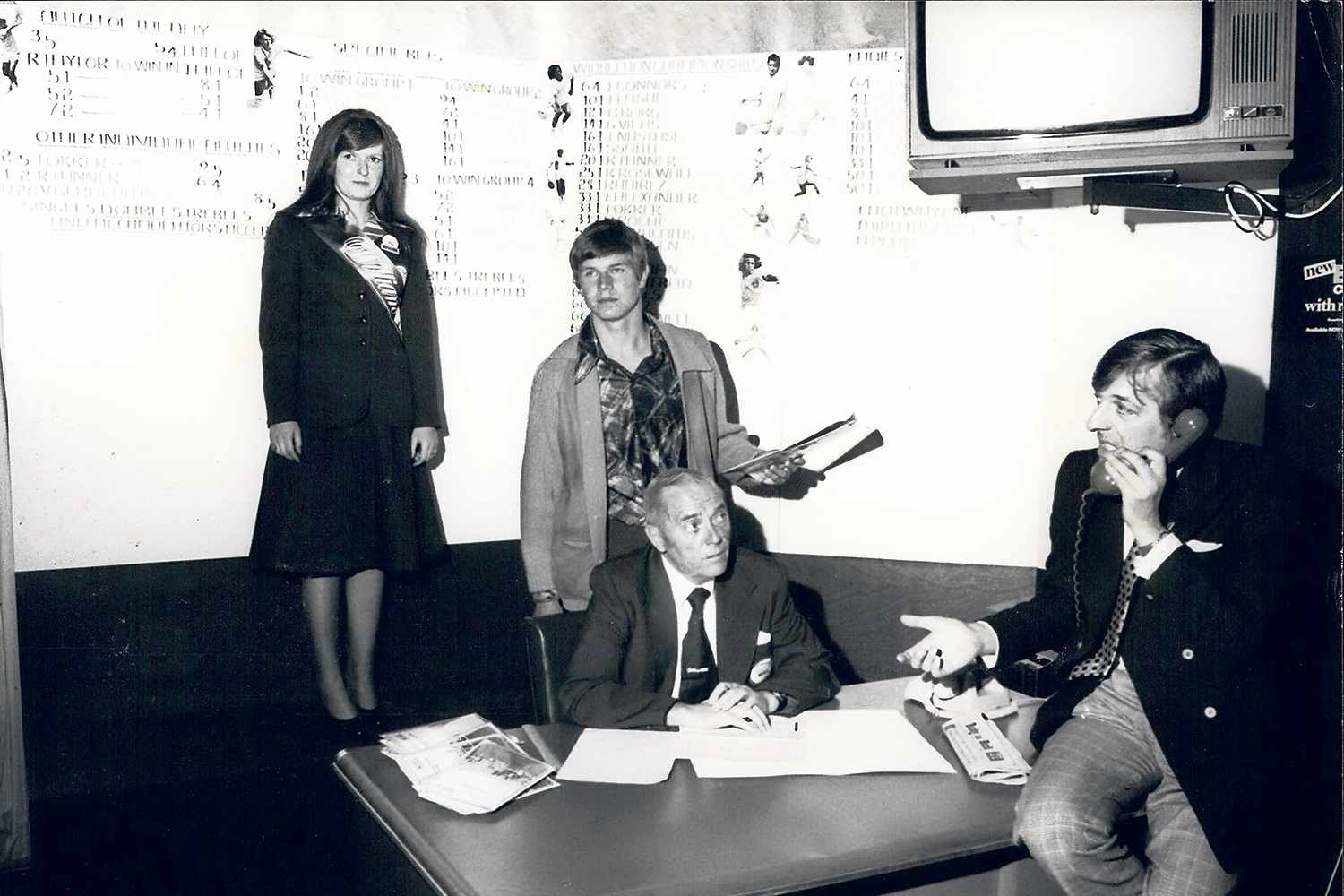This year marks the 50th anniversary of one of the most memorable men’s finals at Wimbledon, when Arthur Ashe bamboozled favourite Jimmy Connors with a tactical masterclass, denying him the pace he thrived on.
Ashe was the first, and still only, Black man to win the title. It was also the first year that players had chairs to sit on at the changes of ends.
But the 1975 Championships were also notable for another first and, as it turned out, last, when the bookmaker William Hill was allowed to pitch a marquee on the hallowed lawns of the All England Club.
It seems a remarkable moment, especially because Wimbledon is so protective of its brand. But it has also always been innovative and having decided to give it a try, the tournament got behind it, even running an advert in the official programme.
Set up next to the old tea lawn, the marquee was manned by William Hill staff, offering all kinds of bets on the fortnight, including a “lovebird double” on defending champions Connors and Chris Evert to win their respective singles titles.
Those taking that particular bet probably didn’t know but the pair, who had become engaged in 1974, had already split up by that stage.
“It was a real coup,” Graham Sharpe, the long-time head of media relations for William Hill, told The Observer. Sharpe was a new boy at the company at the time but recalls the excitement at being on site at one of the world’s biggest sporting events. “You wouldn’t have taken probably the [level] of bets that you would have done in a betting shop in a day, so it wasn’t mega money that you were going to take, but it was definitely a PR coup.”
Today, the shadow of gambling hangs darker over the sport, with worries about potential corruption and also losing gamblers’ abuse of players. These days players, coaches, journalists and anyone with accreditation to events are banned from betting on tennis, or from giving any kind of information to others considering gambling.
At Wimbledon in 1975, players were also banned from betting on matches, but only after an experiment the previous week in Nottingham had gone wrong, when players, knowing more than the oddsmakers, had cleaned up.
“A British guy called Mark Farrell beat Stan Smith [the 1972 Wimbledon champion] in the first round but Stan had a very bad elbow where he could hardly hit the ball and the betting shop didn’t know that,” Roscoe Tanner, the American who was 1979 Wimbledon runner-up, said.
Newsletters
Choose the newsletters you want to receive
View more
For information about how The Observer protects your data, read our Privacy Policy
Thinking that Farrell must be a special player, Ladbrokes then made him favourite to beat the renowned Australian, Phil Dent, which the players, including Tanner, knew was a mistake.
“There was a picture, I think in the Times or something, showing all the players lined up outside of the betting shop on the grounds at Nottingham,” Tanner said.
“Basically, every player bet everything they had on Phil Dent and won. They had to close for a while because they didn’t have enough money.”
At Wimbledon the following week, players were banned from betting but that didn’t stop many of them from ducking their heads into the marquee.
“I can imagine that someone would have tried or did, because you probably wouldn’t notice the world No 168 walking into a betting shop,” Sharpe said.
“And in fact, Jimmy Connors was definitely a regular in our tent at the time. I don’t think he bet against himself though.”
Aware of the potential for players getting involved, and likely knowing more than they did, William Hill found someone who could help.
“We sort of gave ourselves an advantage as well by having Buster Mottram [the British player] as our adviser,” Sharpe said. Mottram was just 20 at the time and was not playing that year due to injury.
“So if anybody else came in and said they wanted to bet on so and so, Buster could have turned around and said, ‘Well, hold on, you’re playing him’.”
Sharpe said William Hill had not been worried about the potential for anyone throwing a match, due to the prestige and the money on offer, even then. The men’s champion earned £10,000 in 1975, the equivalent of £77,000 today, and the women’s winner £7,000.
“In those days, and probably still today, there was far more to gain from being successful at Wimbledon than there would have been from throwing a match,” Sharpe said.
“That’s where you could create a reputation as a giant-killer or a youngster. I don’t think we were unduly worried about match-fixing.”
Not surprisingly, William Hill was keen to return the following year but Wimbledon, according to Sharpe, told it that that site would not be available and eventually got cold feet altogether, raising the fee to the extent that it became unworkable.
“It was a little part of history, which I’m proud to have been involved with,” Sharpe said.
Photograph by Keystone Press/Alamy
